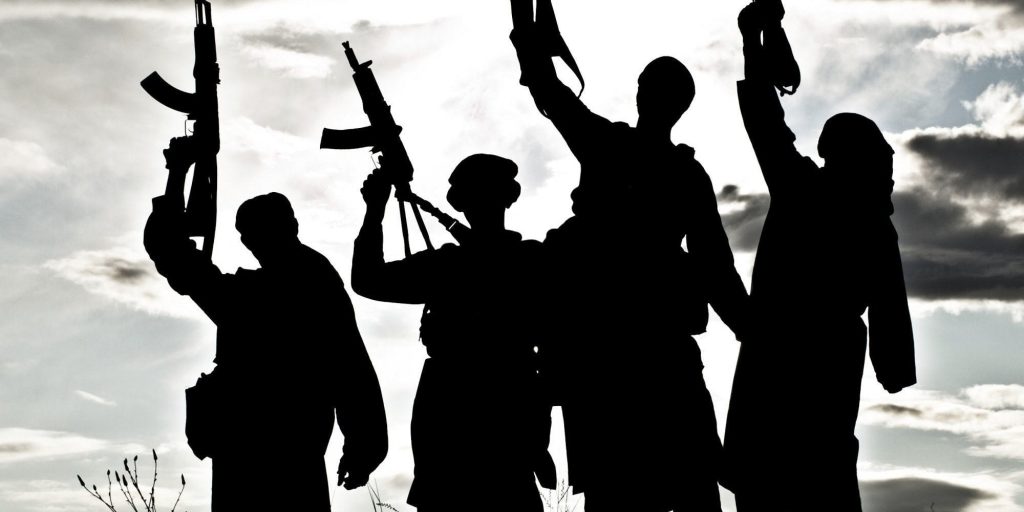by Ian Ralby
4 August 2019

Terrorism catches people’s attention, charcoal does not. It is a certitude much like the fact that a bomb blowing up a building will make international news and a fishing boat laden with jerry cans of diesel will not. Over the last decade, terrorist groups have increasingly sought to fund their operations using activities that many consider ‘benign’ and thus undeserving of serious scrutiny. While the trafficking of arms, drugs or humans draws significant law enforcement attention around the world, goods including fuel, charcoal, honey, sugar, fish and antiquities do not occupy prominent positions on most of these agencies’ priority lists – if they feature at all. Noting how high-profile crimes tend to attract the close watch of national and international authorities, terrorist organisations around the world have found relative ease in recent years by funding themselves through profitable ‘benign’ operations. It is imperative for law enforcement agencies and counterterrorism authorities to increase their coordination on these matters and scrutinise such often overlooked activities as critical sources of terrorist financing.
Perhaps the best-known instance, at least in counterterrorism circles, of seemingly benign economic activity that actually finances terrorist organisations is the trading of Somali charcoal to the Middle East. Acacia charcoal, excellent for use in shisha pipes, has been exported from Somalia for decades. As Al-Shabaab, a terrorist group established in 2006, took over parts of Somalia, it sought to benefit from the lucrative trade in various ways, including through informal taxes and port revenues. In response, the Transitional Federal Government banned the export of charcoal from Somalia and later the international community imposed an embargo on it. The result has been an extensive smuggling operation in an effort to maintain the income stream. Publicly disclosed estimates from the British Royal Navy suggest that this operation currently yields $7 million per year for Al-Shabaab. Prior to substantial interdiction efforts, that figure was once estimated to be in the tens, or even hundreds, of millions. Unlike issues like piracy or wildlife trafficking, charcoal has not captured public attention in the same way, and thus has not garnered the same political interest, though recent exposés have sought to change that. While the counterterrorism community is heavily focused on charcoal, many politicians still view it as a low priority, since compared to other goods it still seems relatively benign. And even if charcoal does gain further visibility, the situation with Al-Shabaab is only one example of a larger phenomenon.
The same apathy towards smuggling of a benign commodity has been a major factor in illicit oil and fuel activities becoming a substantial source of terrorist financing. The majority of people around the world rely on fuel in their daily lives. Consequently, it is perhaps the most ubiquitous commodity and one which people are most interested in obtaining at a discount. Too often, widespread and seemingly harmless shopping for discounts equates to a willingness on the part of law enforcement and the political establishment to overlook the sources of cheaper-than-market-price fuel. They disregard what seem to be low-scale illicit operations as not meriting the attention of law enforcement. This salutary neglect of black market fuel trading has become a major point of manipulation for terrorist groups looking for under-the-radar income streams.
Furthermore, the success of the Islamic State in Iraq and Syria (ISIS) has inspired groups around the world to adopt a Jihadi-Salafist philosophy and seek to ‘restore’ the early Islamic caliphate. ISIS-inspired groups, however, are inspired not only by ISIS ideology but also by ISIS methods and it is well-known that ISIS’ principle source of income has been proceeds from illicit oil and fuel activities. It is therefore not surprising that affiliated groups in other regions of the world have turned to fuel smuggling as their primary source of income. In the Philippines for example, Abu Sayyaf used fuel smuggling both to fund itself and to reinforce smuggling routes that supported its movement of weapons and ammunition in the lead-up to and throughout the year-long siege of Marawi. In Trinidad and Tobago, a similar co-location of ISIS ideology and rampant fuel smuggling has given rise to significant international concern. As with charcoal, a prevalent perception of the commodity itself as being benign has created a blind spot that allows terrorist groups to earn substantial profits with little interference or even interest.
Beyond charcoal and fuel, other goods such as fish, livestock, honey, sugar, minerals and antiquities, depending on their availability, profitability, and relative visibility by law enforcement, have all become sources of income for terrorist groups. Osama Bin Laden used honey trading both to make profits and for money laundering. Few goods could seem less sinister than honey, and that provided the perfect cover and income stream for one of history’s most ominous terrorists. Whether the trade is initially illegal, as with fuel smuggling, or technically legal, as with honey or charcoal trading, the very fact that it is being used to fund terrorist organisations makes it illegal.
The point is that terrorist groups are relying on economic activities perceived as benign in order to make, maintain and move their wealth. And wealth is extremely important for terrorism, as evidenced by the direct correlation between the number of attacks perpetrated by a group and its relative financial stature. In a 2016 interview, Maj. Gen. Amos Gilad, former Director of the Israeli Defense Ministry’s Political-Military Bureau, stated, ‘The financial component of terror organizations is critical, and its indispensability for terror attacks is like fuel for the car’. As true as this statement is, the irony is that the financial component of terror organisations may literally be fuel for the car.
To change this dynamic, law enforcement agencies and counterterrorism units need to become more proactive in identifying their own blind spots and false perceptions. This means consciously reexamining those matters they have overlooked in the past. That, however, is not easy to do. Terrorist groups will continue to seek, find and exploit economic opportunities that occupy lower positions on the priority lists of the authoritaries. Inevitably, as law enforcement approaches change, so, too, will terrorist activities. But, it is imperative that the crimes and trading activities that have been relegated to benign status be reconsidered not just in their own right but for their malignant implications. The profits accruing from such overlooked criminal goods as shisha charcoal, farm diesel or artisanal honey, may actually be funding deadly bombings, hijackings, or militant offensives.
Dr. Ian Ralby is a leading expert in international law, maritime security and countering transnational organized crime. He and his team at I.R. Consilium, LLC have world leading expertise in oil and fuel crimes, and the nexus between maritime crimes and both criminal and terrorist activities. Among other degrees, he holds a J.D. from William & Mary and a Ph.D. from the University of Cambridge where he was a Gates Scholar.
